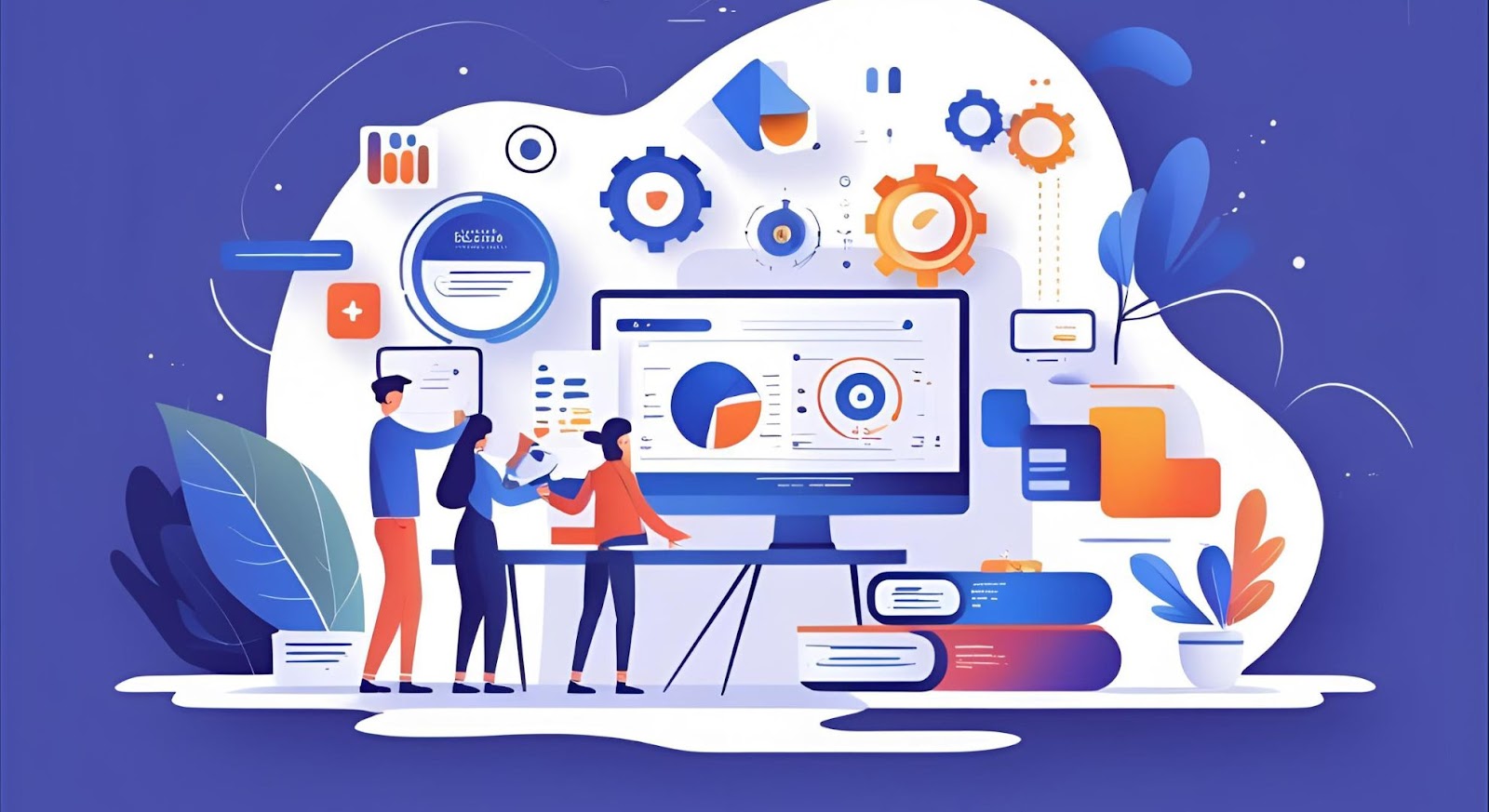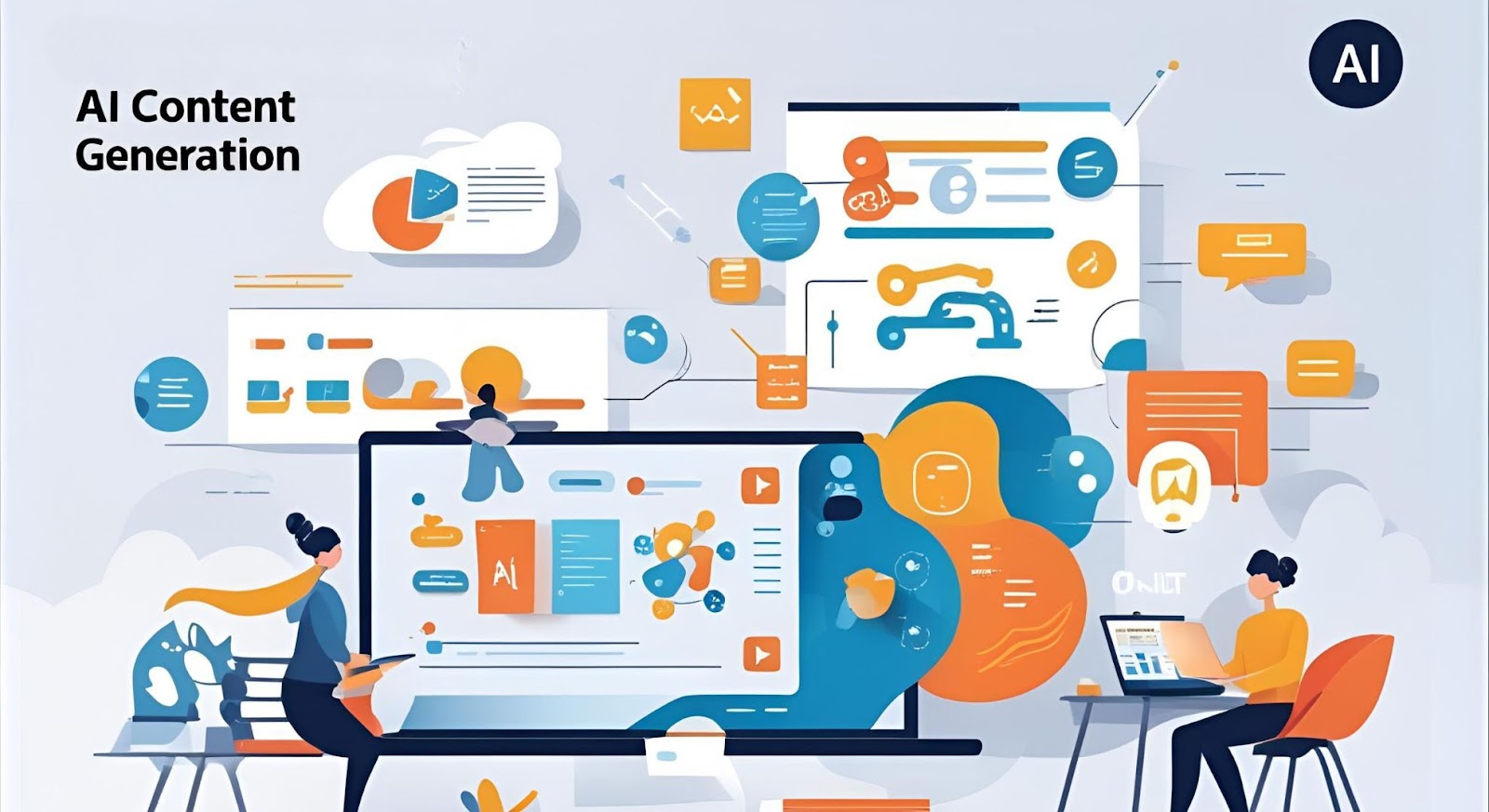AI content generation represents the most significant transformation in local SEO since Google My Business launched, fundamentally changing how businesses create, optimize, and scale location-based marketing strategies. Traditional local SEO demanded extensive manual effort for creating unique content across multiple locations, managing countless directory listings, and maintaining consistent optimization across diverse geographic markets. AI-powered content generation now enables businesses to produce hyper-localized, search-optimized content at unprecedented scale while maintaining quality standards that satisfy both search algorithms and local audiences.
The integration of machine learning algorithms with local search optimization creates opportunities for businesses to develop sophisticated content strategies that adapt dynamically to local market conditions, seasonal trends, and competitive landscapes. Advanced AI platforms analyze local search patterns, competitor strategies, and consumer behavior data to generate content recommendations that align with specific geographic markets and business objectives. This technological evolution enables small businesses to compete effectively against larger enterprises while providing enterprise-level organizations with efficient scaling capabilities across hundreds or thousands of locations.
Key Takeaways
• AI-powered content automation enables businesses to create location-specific content at scale while maintaining relevance and quality standards that support local search rankings
• Hyper-localization capabilities leverage machine learning to analyze local market data and generate content that resonates with specific geographic audiences and search behaviors
• Dynamic optimization features automatically adjust content based on performance data, seasonal trends, and competitive changes to maintain search visibility and engagement
• Multi-location management streamlines content creation and optimization across numerous business locations through centralized AI-driven systems and automated workflows
• Personalization at scale delivers customized local experiences that address specific community interests, local events, and neighborhood characteristics through intelligent content generation
• Performance analytics integration provides data-driven insights that inform content strategy while enabling continuous optimization based on actual local search performance metrics
Overview
AI content generation transforms local SEO by automating complex optimization processes while delivering personalized, location-specific content that drives meaningful business results. This comprehensive analysis explores how artificial intelligence technologies revolutionize traditional local SEO approaches, examining practical implementation strategies, tool selections, and performance optimization techniques that enable businesses to achieve competitive advantages in local search markets. The methodology emphasizes scalable solutions that balance automation efficiency with content quality requirements essential for sustained local search success.
Understanding AI-Powered Local SEO Evolution
The convergence of artificial intelligence and local search optimization creates unprecedented opportunities for businesses to scale personalized marketing efforts while maintaining the community-focused approach essential for local SEO success. Traditional local SEO required manual creation of unique content for each business location, often resulting in generic, template-driven approaches that failed to capture local market nuances or community-specific interests. AI content generation addresses these limitations by analyzing vast amounts of local data including demographic information, search patterns, competitive landscapes, and community events to produce genuinely relevant local content.
Machine learning algorithms process multiple data sources simultaneously, including Google Trends data for specific geographic areas, local news and events, demographic information, and competitor content analysis to identify content opportunities that human marketers might overlook. This comprehensive analysis enables AI systems to generate content suggestions that align with local search intent while incorporating neighborhood-specific terminology, local landmarks, and community interests that resonate with target audiences.
The Technology Behind AI Local Content Generation
Natural language processing capabilities have evolved to understand regional dialects, local terminology, and community-specific communication patterns that influence how people search for local businesses and services. Advanced AI platforms analyze millions of local search queries to identify linguistic patterns and preferences that vary by geographic location, enabling content generation that feels authentically local rather than artificially optimized.
Machine learning models trained on successful local SEO campaigns can identify content patterns, keyword combinations, and formatting approaches that consistently generate strong performance in specific market types. These insights enable AI systems to recommend content strategies based on proven success patterns while adapting recommendations to unique business characteristics and competitive environments.
AI Tools Revolutionizing Local Content Creation
Modern AI content generation platforms offer sophisticated local SEO capabilities that extend far beyond simple content creation to include competitive analysis, keyword research, and performance optimization recommendations. Tools like Copy.ai, Jasper, and Writesonic provide local business templates that incorporate location-specific variables, enabling rapid creation of Google My Business posts, local landing pages, and directory descriptions that maintain consistency while delivering location-appropriate messaging.

Advanced platforms integrate with Google My Business APIs to automate posting schedules, respond to customer reviews, and update business information across multiple locations simultaneously. This integration enables businesses to maintain active, engaging local presences without requiring dedicated staff at each location while ensuring content remains fresh and relevant to local audiences.
Specialized local SEO AI tools analyze competitor content strategies, identify successful local keyword combinations, and recommend content topics based on trending local interests and seasonal patterns. These insights enable businesses to develop content calendars that anticipate local search trends while capitalizing on competitive gaps in content coverage.
Content Personalization and Localization Features
AI-powered localization extends beyond simple location name insertion to include analysis of local culture, demographics, and interests that influence content preferences and search behavior. Platforms analyze local social media trends, news coverage, and community events to suggest content angles that align with current local interests while supporting business objectives.
Dynamic content generation adapts messaging based on local market conditions, competitive positioning, and seasonal factors that influence customer behavior and search patterns. This adaptability ensures content remains relevant and engaging while maintaining optimization effectiveness across different time periods and market conditions.
Automated Google My Business Optimization
AI-powered Google My Business management transforms the most critical aspect of local SEO by automating posting schedules, optimizing content for local search algorithms, and managing customer interactions across multiple business locations. Advanced platforms analyze Google My Business performance data to identify optimal posting times, content formats, and messaging approaches that maximize visibility and engagement for specific business types and geographic markets.
Automated review response systems utilize natural language processing to generate personalized, professional responses to customer feedback while maintaining brand voice consistency and incorporating relevant local keywords. These systems analyze review sentiment, identify key concerns or compliments, and generate responses that address specific customer issues while supporting local SEO objectives through strategic keyword integration.
Content optimization features analyze Google My Business post performance to identify trending topics, optimal content lengths, and engagement-driving formats that perform well in specific local markets. This analysis enables continuous improvement of posting strategies while reducing manual management requirements for businesses operating multiple locations.
Advanced GMB Features and AI Integration
AI systems optimize Google My Business Q&A sections by analyzing common customer inquiries and generating comprehensive, keyword-rich responses that address customer needs while supporting local search visibility. Automated systems monitor new questions and provide suggested responses based on business information and successful response patterns from similar businesses.
Photo optimization utilizes computer vision technology to analyze image performance, suggest optimal upload schedules, and recommend image types that generate higher engagement rates for specific business categories and local markets. This technological approach ensures visual content contributes effectively to local search optimization while minimizing manual image management requirements.
Hyper-Local Content Strategy Development
AI-powered content strategy development analyzes local market data, competitor activities, and search trends to create comprehensive content plans that address specific community interests while supporting business objectives. Machine learning algorithms identify content gaps in local markets, seasonal content opportunities, and trending topics that align with business services and local search intent.

Geographic data analysis enables content creation that references local landmarks, neighborhood characteristics, and community events in natural, contextually appropriate ways that enhance local relevance without appearing artificially optimized. This sophisticated localization creates content that genuinely serves local audiences while satisfying search algorithm preferences for location-specific information.
Competitor content analysis identifies successful local content strategies while revealing opportunities for differentiation and improvement. AI systems analyze competitor posting frequency, content topics, engagement rates, and keyword strategies to recommend content approaches that can capture competitive advantages in local search results.
Community Event Integration and Local Trend Analysis
AI platforms monitor local event calendars, news sources, and social media trends to identify content opportunities that align with community interests and seasonal patterns. This monitoring enables businesses to create timely, relevant content that capitalizes on local interests while demonstrating community engagement that enhances local search authority.
Seasonal optimization analyzes historical search data and local market patterns to predict content needs and optimization opportunities throughout the year. This predictive capability enables businesses to prepare content strategies that anticipate seasonal demand while positioning for competitive advantages during peak search periods.
Scaling Multi-Location SEO with AI
Multi-location businesses benefit significantly from AI content generation capabilities that maintain brand consistency while delivering location-specific customization across hundreds or thousands of business locations. Centralized AI systems generate location-specific content variations that incorporate local keywords, geographic references, and community-specific information while maintaining consistent brand messaging and quality standards.
Template-based content generation systems enable rapid deployment of optimized content across multiple locations while ensuring each location receives unique, search-friendly content that avoids duplicate content penalties. These systems analyze local market characteristics to customize templates appropriately for different geographic markets and competitive environments.
Performance monitoring across multiple locations identifies successful content strategies that can be replicated in similar markets while revealing location-specific optimization opportunities that require customized approaches. This analytical capability enables efficient resource allocation and strategy optimization across diverse geographic markets.
Automated Citation and Directory Management
AI-powered citation management systems monitor business information consistency across hundreds of local directories while automatically correcting inaccuracies and updating information when business details change. This automation eliminates manual citation management requirements while ensuring local search authority remains strong across all relevant platforms.
Directory optimization utilizes AI analysis to identify high-value local directories and industry-specific listing opportunities that provide competitive advantages in specific markets. Automated submission systems ensure business information appears consistently across all relevant platforms while maintaining optimal keyword integration and category selections.
Performance Analytics and AI-Driven Optimization
AI-powered analytics platforms provide comprehensive insights into local SEO performance while identifying optimization opportunities that human analysis might overlook. Machine learning algorithms analyze vast amounts of performance data to identify patterns, correlations, and trends that inform strategic decision-making and resource allocation optimization.

Predictive analytics capabilities forecast local search performance based on current optimization efforts, competitive activities, and market trends. These predictions enable businesses to allocate resources proactively while adjusting strategies to capitalize on emerging opportunities or address potential challenges before they impact performance.
Real-time optimization recommendations adjust content strategies, posting schedules, and keyword targeting based on performance data and competitive changes. This dynamic optimization ensures local SEO strategies remain effective as market conditions and algorithm preferences evolve over time.
Competitive Intelligence and Market Analysis
AI systems continuously monitor competitor local SEO activities, content strategies, and performance changes to identify competitive threats and opportunities. This intelligence enables rapid strategic adjustments that maintain competitive advantages while capitalizing on competitor weaknesses or strategic gaps.
Market trend analysis identifies emerging opportunities in local search patterns, consumer behavior changes, and industry developments that could impact local SEO effectiveness. Understanding these trends enables proactive strategy development that positions businesses for success as market conditions evolve.
Implementation Strategies and Best Practices
Successful AI integration into local SEO strategies requires careful planning and systematic implementation that balances automation efficiency with quality control and brand consistency requirements. Organizations should begin with pilot programs that test AI capabilities on limited geographic areas or business locations before scaling to comprehensive implementation across all markets.
Quality control systems ensure AI-generated content meets brand standards, accuracy requirements, and local relevance criteria before publication. Human oversight remains essential for reviewing AI recommendations, approving content variations, and ensuring automation serves business objectives effectively without sacrificing quality or authenticity.
Training and change management help teams adapt to AI-powered workflows while developing skills necessary for effective collaboration with automated systems. Successful implementation requires clear understanding of AI capabilities, limitations, and optimal use cases that maximize technology benefits while maintaining human strategic oversight.
Integration with Existing Marketing Technology
API integrations connect AI content generation platforms with existing marketing technology stacks including customer relationship management systems, email marketing platforms, and social media management tools. These integrations enable unified marketing approaches that leverage AI capabilities while maintaining workflow efficiency and data consistency.
Workflow automation connects AI content generation with approval processes, publishing schedules, and performance monitoring systems that ensure seamless operation while maintaining quality control and strategic alignment. Automation reduces manual effort while preserving essential human oversight and decision-making capabilities.
Future Trends and Emerging Opportunities
Voice search optimization represents a growing opportunity for AI-powered local SEO as conversational search queries become more prevalent and natural language processing capabilities continue advancing. AI systems can analyze voice search patterns to optimize content for conversational queries while maintaining local relevance and search visibility.
Visual search integration through AI-powered image optimization and recognition technology creates new opportunities for local businesses to capture search traffic through visual content optimization. Understanding how visual search influences local discovery enables strategic content development that capitalizes on emerging search behaviors.
Augmented reality integration with local search results creates immersive experiences that enhance customer engagement while providing new optimization opportunities for location-based businesses. AI systems can optimize content for AR applications while maintaining traditional search optimization effectiveness.
Privacy and Ethical Considerations
Data privacy compliance ensures AI systems respect user privacy preferences while maintaining optimization effectiveness within evolving regulatory frameworks. Understanding privacy requirements enables responsible AI implementation that builds customer trust while achieving business objectives.
Ethical AI usage focuses on creating genuine value for local communities rather than manipulating search results or misleading customers. Responsible implementation emphasizes authentic content creation and honest business representation that supports long-term success through customer satisfaction and community engagement.
Frequently Asked Questions
How does AI content generation improve local SEO efficiency? AI content generation dramatically improves efficiency by automating time-intensive tasks including content creation, keyword research, and competitive analysis while maintaining quality standards. Businesses typically reduce content creation time by 70-80% while improving consistency and local relevance through AI-powered optimization.
What are the risks of using AI for local SEO content? Primary risks include potential content quality issues, lack of authentic local knowledge, and over-reliance on automation without human oversight. Mitigation requires quality control systems, local market expertise, and strategic human involvement in content approval and optimization decisions.
How much does AI-powered local SEO cost compared to traditional approaches? AI-powered local SEO typically costs 40-60% less than traditional manual approaches while delivering superior consistency and scalability. Initial implementation costs may be higher, but ongoing operational costs decrease significantly through automation and efficiency improvements.
Can AI replace human expertise in local SEO? AI enhances rather than replaces human expertise by automating routine tasks while enabling strategic focus on high-value activities including strategy development, relationship building, and creative problem-solving that require human insight and community knowledge.
How do search engines view AI-generated content for local SEO? Search engines evaluate AI-generated content based on quality, relevance, and user value rather than creation method. High-quality AI content that serves user needs and provides genuine local value performs well in search results when properly optimized and strategically implemented.
What metrics should businesses track for AI-powered local SEO? Critical metrics include local search rankings, organic traffic growth, Google My Business engagement, customer inquiries, and conversion rates. Additionally, businesses should monitor content creation efficiency, consistency scores, and time savings achieved through AI implementation.
How quickly can businesses see results from AI-powered local SEO? Initial improvements typically appear within 30-60 days of implementation, with significant results developing over 90-120 days as AI systems learn market patterns and optimization strategies mature. Speed depends on market competition, content quality, and implementation comprehensiveness.
What training is required for teams to use AI local SEO tools effectively? Teams typically require 20-40 hours of training covering platform usage, quality control procedures, and strategic integration approaches. Ongoing education ensures teams stay current with AI capabilities and optimization best practices as technology evolves.
How does AI handle different local markets and cultural nuances? Advanced AI systems analyze local data sources, cultural patterns, and communication preferences to adapt content appropriately for different markets. However, human oversight remains important for ensuring cultural sensitivity and authentic local representation.
What future developments can businesses expect in AI local SEO? Future developments include enhanced voice search optimization, visual search integration, predictive analytics improvements, and more sophisticated personalization capabilities. Businesses should prepare for increased automation capabilities while maintaining focus on authentic community engagement.
Sources
AI Content Generation Platforms:
Local SEO AI Tools:
- BrightLocal AI-Powered Features
- Podium AI Business Management
- Reputation.com Multi-Location Management
Google My Business Automation:
- Google My Business API Documentation
- Google AI and Machine Learning Resources
- Local Search Algorithm Updates
Analytics and Performance Tracking:
Industry Research and Trends:
Revolutionize your local SEO strategy with AI-powered content generation that delivers scalable, personalized optimization across all your business locations. Cloud 7 Agency specializes in implementing cutting-edge AI technologies that automate content creation while maintaining the authentic local engagement essential for community-focused businesses. Contact our AI SEO specialists today to discover how intelligent automation can transform your local search performance and drive sustainable business growth.

